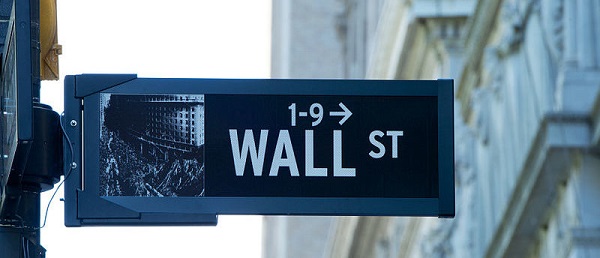Banks
Gold breaks $2,200 an ounce for first time amid inflation, interest rate chaos

From LifeSiteNews
Many consider investing in gold a key measure for economic security against both the economic harm of inflationary government spending and the advent of central bank digital currencies around the world.
Gold jumped to a record price of $2,220.89 in early trading this week before retreating Thursday, amid foreign governments buying up more of the precious metal to brace for changing economic conditions and expectations that the U.S. Federal Reserve will cut interest rates.
Bloomberg reports that gold’s price set a new record, rising 1.6% before dropping 0.9%, continuing an overall rise of almost 10% over the past month. The news follows China and other central banks stocking up on gold, and is considered particularly noteworthy that higher prices have persisted despite high interest rates.
Fortune explains that investors had expected Federal Reserve Chair Jerome Powell to tease a continuation of high interest rates; instead he announced at a press conference this week that the data hasn’t “really changed the overall story, which is that of inflation moving down gradually on a sometimes bumpy road towards 2%.”
This “dovish surprise” has “boosted the attractiveness of holding gold as an asset” through lower borrowing costs, according to TradeStation senior market analyst David Morrison.
Opinions are divided as to how much more attractive it will become for how long. Morrison warns that precious metal investors “should be prepared for a profit-taking pullback which may take the gloss off the latest move higher,” while Bank of America analysts say gold remains “one of our favorite trades for 2024. More investors could enter the market if yields fall and could help push the gold price to Paul Ciana’s potential long-term upside [target] around $2500-$2600.”
“What we saw last night was the green light really for gold traders to come back in,” said Chris Weston, head of research for Pepperstone Group Ltd. Marcus Garvey, head of commodities strategy at Macquarie Group Ltd., added that he considers a gold price as high as $2,300 a “reasonable target…I think the Fed not taking the opportunity of recently firmer inflation to lean hawkish at their meeting yesterday means gold is now going into a short-term overshoot scenario.”
Many consider investing in gold a key measure for economic security against not only the economic harm of inflationary government spending, but the international trend of central bank digital currencies potentially making individuals’ ability to provide for their families contingent on systems that could be used to more easily track or restrict individuals’ movements, invade their privacy, and limit their economic choices, eventually with the potential to even make the ability to pay for anything contingent on compliance with the ideological values of those in power.
Banks
Wall Street Clings To Green Coercion As Trump Unleashes American Energy


From the Daily Caller News Foundation
By Jason Isaac
The Trump administration’s recent move to revoke Biden-era restrictions on energy development in Alaska’s North Slope—especially in the Arctic National Wildlife Refuge (ANWR)—is a long-overdue correction that prioritizes American prosperity and energy security. This regulatory reset rightly acknowledges what Alaska’s Native communities have long known: responsible energy development offers a path to economic empowerment and self-determination.
But while Washington’s red tape may be unraveling, a more insidious blockade remains firmly in place: Wall Street.
Despite the Trump administration’s restoration of rational permitting processes, major banks and insurance companies continue to collude in starving projects of the capital and risk management services they need. The left’s “debanking” strategy—originally a tactic to pressure gun makers and disfavored industries—is now being weaponized against American energy companies operating in ANWR and similar regions.
Dear Readers:
As a nonprofit, we are dependent on the generosity of our readers.
Please consider making a small donation of any amount here. Thank you!
This quiet embargo began years ago, when JPMorgan Chase, America’s largest bank, declared in 2020 that it would no longer fund oil and gas development in the Arctic, including ANWR. Others quickly followed: Goldman Sachs, Wells Fargo, and Citigroup now all reject Arctic energy projects—effectively shutting down access to capital for an entire region.
Insurers have joined the pile-on. Swiss Re, AIG, and AXIS Capital all publicly stated they would no longer insure drilling in ANWR. In 2023, Chubb became the first U.S.-based insurer to formalize its Arctic ban.
These policies are not merely misguided—they are dangerous. They hand America’s energy future over to OPEC, China, and hostile regimes. They reduce competition, drive up prices, and kneecap the very domestic production that once made the U.S. energy independent.
This isn’t just a theoretical concern. I’ve experienced this discrimination firsthand.
In February 2025, The Hartford notified the American Energy Institute—an educational nonprofit I lead—that it would not renew our insurance policy. The reason? Not risk. Not claims. Not underwriting. The Hartford cited our Facebook page.
“The reason for nonrenewal is we have learned from your Facebook page that your operations include Trade association involved in promoting social/political causes related to energy production. This is not an acceptable exposure under The Hartford’s Small Commercial business segment’s guidelines.”
That’s a direct quote from their nonrenewal notice.
Let’s be clear: The Hartford didn’t drop us for anything we did—they dropped us for what we believe. Our unacceptable “exposure” is telling the truth about the importance of affordable and reliable energy to modern life, and standing up to ESG orthodoxy. We are being punished not for risk, but for advocacy.
This is financial discrimination, pure and simple. What we’re seeing is the private-sector enforcement of political ideology through the strategic denial of access to financial services. It’s ESG—Environmental, Social, and Governance—gone full Orwell.
Banks, insurers, and asset managers may claim these decisions are about “climate risk,” but they rarely apply the same scrutiny to regimes like Venezuela or China, where environmental and human rights abuses are rampant. The issue is not risk. The issue is control.
By shutting out projects in ANWR, Wall Street ensures that even if federal regulators step back, their ESG-aligned agenda still moves forward—through corporate pressure, shareholder resolutions, and selective financial access. This is how ideology replaces democracy.
While the Trump administration deserves praise for removing federal barriers, the fight for energy freedom continues. Policymakers must hold financial institutions accountable for ideological discrimination and protect access to banking and insurance services for all lawful businesses.
Texas has already taken steps by divesting from anti-energy financial firms. Other states should follow, enforcing anti-discrimination laws and leveraging state contracts to ensure fair treatment.
But public pressure matters too. Americans need to know what’s happening behind the curtain of ESG. The green financial complex is not just virtue-signaling—it’s a form of economic coercion designed to override public policy and undermine U.S. sovereignty.
The regulatory shackles may be coming off, but the private-sector blockade remains. As long as banks and insurers collude to deny access to capital and risk protection for projects in ANWR and beyond, America’s energy independence will remain under threat.
We need to call out this hypocrisy. We need to expose it. And we need to fight it—before we lose not just our energy freedom, but our economic prosperity.
The Honorable Jason Isaac is the Founder and CEO of the American Energy Institute. He previously served four terms in the Texas House of Representatives.
Banks
Bank of Canada Slashes Interest Rates as Trade War Wreaks Havoc

With businesses cutting jobs, inflation rising, and consumer confidence collapsing, the BoC scrambles to contain the damage
The Bank of Canada just cut interest rates again, this time by 25 basis points, bringing the rate down to 2.75%. On the surface, that might sound like good news—lower rates usually mean cheaper borrowing, easier access to credit, and in theory, more money flowing into the economy. But let’s be clear about what’s actually happening here. The Canadian economy isn’t growing because of strong fundamentals or responsible fiscal policy. The Bank of Canada is slashing rates because the Trudeau—sorry, Carney—government has utterly mismanaged this country’s economic future. And now, with the U.S. slapping tariffs on Canadian goods and our government responding with knee-jerk retaliatory tariffs, the central bank is in full-blown damage control.
Governor Tiff Macklem didn’t mince words at his press conference. “The Canadian economy ended 2024 in good shape,” he insisted, before immediately admitting that “pervasive uncertainty created by continuously changing U.S. tariff threats have shaken business and consumer confidence.” In other words, the economy was doing fine—until reality set in. And that reality is simple: a trade war with our largest trading partner is economic suicide, yet the Canadian government has charged headlong into one.
Macklem tried to explain the Bank’s thinking. He pointed out that while inflation has remained close to the BoC’s 2% target, it’s expected to rise to 2.5% in March thanks to the expiry of a temporary GST holiday. That’s right—Canadians are about to get slammed with higher prices on top of already sky-high costs for groceries, gas, and basic necessities. But that’s not even the worst part. Macklem admitted that while inflation will go up, consumer spending and business investment are both set to drop as a result of this economic uncertainty. Businesses are pulling back on hiring. They’re delaying investment. They’re scared. And rightly so.
A BoC survey released alongside the rate decision shows that 40% of businesses plan to cut back on hiring, particularly in manufacturing, mining, and oil and gas—precisely the industries that were already hammered by Ottawa’s obsession with green energy and ESG policies. As Macklem put it, “Canadians are more worried about their job security and financial health as a result of trade tensions, and they intend to spend more cautiously.” In other words, this is self-inflicted. The government could have pursued a different approach. It could have worked with the U.S. to de-escalate trade tensions. Instead, Mark Carney—an unelected, Davos-approved globalist—is running the show, doubling down on tariffs that will raise prices for Canadians while doing absolutely nothing to change U.S. policy.
The worst part is that the Bank of Canada is completely cornered. It can’t provide forward guidance on future rate decisions because, as Macklem admitted, it has no idea what’s going to happen next. “We are focused on assessing the upward pressure on inflation from tariffs and a weaker dollar, and the downward pressure from weaker domestic demand,” he said. That’s central banker-speak for: We’re guessing, and we hope we don’t screw this up. And if inflation does spiral out of control, the BoC could be forced to raise rates instead of cutting them.
At the heart of this mess is a government that has spent years inflating the size of the state while crushing private sector growth. Macklem admitted that consumer and business confidence has been “sharply affected” by recent developments. That’s putting it mildly. The Canadian dollar has dropped nearly 5% since January, making everything imported from the U.S. more expensive. Meanwhile, Ottawa has responded to U.S. tariffs with a tit-for-tat strategy, placing nearly $30 billion in retaliatory tariffs on American goods. The BoC is now forced to clean up the wreckage, but it’s like trying to put out a fire with a garden hose.
And what about unemployment? Macklem dodged giving a direct forecast, but he didn’t exactly sound optimistic. “We expect the first quarter to be weaker,” he said. “If household demand, if business investment remains restrained in the second quarter, and you’ll likely see weakness in exports, you could see an even weaker second quarter.” That’s code for job losses. It’s already happening. The hiring freezes, the canceled investments—those translate into real layoffs, real pay cuts, real suffering for Canadian families.
Meanwhile, inflation expectations are rising. And once those expectations set in, they become nearly impossible to undo. Macklem was careful in his wording, but the meaning was clear: “Some prices are going to go up. We can’t change that. What we particularly don’t want to see is that first round of price increases have knock-on effects, causing other prices to go up… becoming generalized and ongoing inflation.” Translation: We know this is going to hurt Canadians, we just hope it doesn’t spiral out of control.
If this sounds familiar, that’s because it is. The same policymakers who told you that inflation was “transitory” in 2021 and then jacked up rates at record speed are now telling you that trade war-driven inflation will be “temporary.” But remember this: the BoC is only reacting to the mess created by politicians. The real blame lies with the people in charge. And now, that’s Mark Carney.
Macklem refused to comment on Carney’s role as prime minister, insisting that the BoC remains “independent” from politics. That’s cute. But the damage is already done. Ottawa picked a fight with the U.S. and now the BoC is left trying to prevent a full-scale economic downturn. The problem is, monetary policy can’t fix bad leadership. Canadians are the ones who will pay the price.
-

 Automotive2 days ago
Automotive2 days agoHyundai moves SUV production to U.S.
-

 2025 Federal Election2 days ago
2025 Federal Election2 days agoAs PM Poilievre would cancel summer holidays for MP’s so Ottawa can finally get back to work
-

 armed forces24 hours ago
armed forces24 hours agoYet another struggling soldier says Veteran Affairs Canada offered him euthanasia
-

 2025 Federal Election2 days ago
2025 Federal Election2 days agoPoilievre Campaigning To Build A Canadian Economic Fortress
-

 2025 Federal Election2 days ago
2025 Federal Election2 days agoThe Cost of Underselling Canadian Oil and Gas to the USA
-

 Automotive2 days ago
Automotive2 days agoCanadians’ Interest in Buying an EV Falls for Third Year in a Row
-

 International13 hours ago
International13 hours agoHistory in the making? Trump, Zelensky hold meeting about Ukraine war in Vatican ahead of Francis’ funeral
-

 Opinion5 hours ago
Opinion5 hours agoCanadians Must Turn Out in Historic Numbers—Following Taiwan’s Example to Defeat PRC Election Interference





